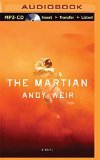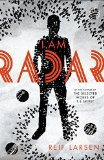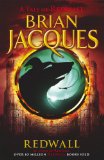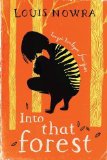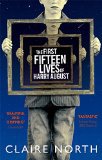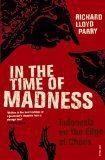I had high hopes for March, suspecting it might be my best reading month for a while. Unfortunately many of the books that I was excited about (The Buried Giant, Everything I Never Told You and Wolf Border (reviews for these last two coming soon)) failed to live up to expectations. Luckily both The Martian and I Am Radar were fantastic reads. They are very different in style (The Martian is plot driven, whilst I Am Radar is a slow, reflective book packed with beautiful prose), but the thing they both have in common is great science. I love it when authors aren’t afraid to tackle complex theories and stretch them in new directions.
Books of the Month
Books Reviewed in March:
The Martian by Andy Weir (Audio Book) 
The Book of Fathers by Miklós Vámos 
No Such Thing As Failure by David Hempleman-Adams 
Plans for April
The Wellcome Prize Shortlist
I’m planning to read the Wellcome Prize shortlist before the winner is announced on the 29th April. The Wellcome Prize celebrates the best new books that engage with some aspect of medicine, health or illness and I’ve had a very good experience with the winners from previous years (including Far From the Tree by Andrew Solomon and The Immortal Life of Henrietta Lacks by Rebecca Skloot)
I’ve already read Do No Harm: Stories of Life, Death and Brain Surgery by Henry Marsh (review coming soon) and All My Puny Sorrows by Miriam Toews
and plan to read the rest of the shortlist soon:
The Incredible Unlikeliness of Being: Evolution and the Making of Us by Alice Roberts
My Age of Anxiety by Scott Stossel
Non Fiction
I’m also going through a non-fiction stage. I’m listening to An Astronaut’s Guide to Life on Earth by Chris Hadfield in my car and Steve Jobs by Walter Isaacson
in my kitchen. I’m also in the final section of School Blues by Daniel Pennac,
so hope to have my first review of a non-fiction book in translation up soon.
Other books
The House We Grew Up In by Lisa Jewell is my book club’s choice this month and Golden Boy by Abigail Tarttelin
and The People in the Trees by Hanya Yanagihara
are also high on my list. I’m also continuing my investigation of the Bailey’s longlist and will probably pick up a few random selections along the way.
Have a great Easter!
